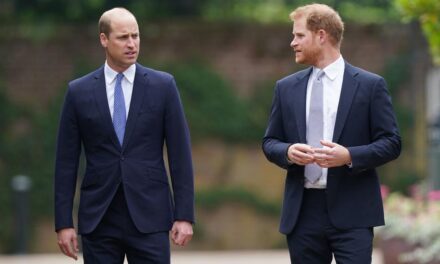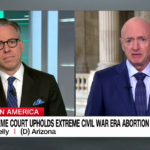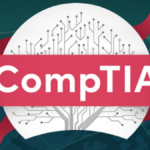
Despite Musk’s claims, there’s no proof the FBI told Twitter to suppress the Hunter Biden story
CNN —
Internal Twitter communications released by the company’s new owner and CEO, Elon Musk, are fueling intense scrutiny of the FBI’s efforts alongside social media companies to thwart foreign disinformation in the run-up to the 2020 election.
At the heart of the controversy is Twitter’s decision in October 2020 to block users from sharing a New York Post story containing material from a laptop belonging to Hunter Biden. Conservative critics have accused Twitter of suppressing the story at the behest of the FBI, something they claim the released communications, dubbed the “Twitter Files,” demonstrate.
Musk himself has alleged the communications show government censorship, suggesting Twitter acted “under orders from the government” when it suppressed the Hunter Biden laptop story.
But so far, none of the released messages explicitly show the FBI telling Twitter to suppress the story. In fact, the opposite view emerges from sworn testimony by an FBI agent at the center of the controversy. And in interviews with CNN, half a dozen tech executives and senior staff, along with multiple federal officials familiar with the matter, all deny any such directive was given.
“We would never go to a company to say you need to squelch this story,” said one former FBI official who helped oversee the government’s cooperation with companies including Twitter, Google and Facebook.

Musk and his conservative allies have insinuated the released messages provide evidence of illicit behavior by the FBI, suggesting the exchange of secret files pertaining to Hunter Biden, and improper payments made to Twitter. But CNN’s interviews with people directly involved with the interactions and with those who have reviewed the documents disprove those claims.
Matt Taibbi, one of the journalists Musk tapped this month to comb through Twitter internal messages for evidence of free speech violations, said himself on December 2 that “there is no evidence – that I’ve seen – of any government involvement in the laptop story.”
What is clear, however, is that following Russia’s meddling campaign in 2016, plus after years of interactions with federal agents about how to spot foreign disinformation efforts, Twitter executives were hyper suspicious of anything that looked like foreign influence and were primed to act, even without direction from the government.
By the time the New York Post published its laptop story on October 14, 2020, Yoel Roth, Twitter’s then head of site integrity, had spent two years meeting with the FBI and other government officials. He was prepared for some kind of hack and leak operation.
“There were lots of reasons why the entire industry was on alert,” Roth said at a conference in November, not long after he resigned from Twitter. Roth insists he was not in favor of blocking the story and thought the company’s decision was a mistake.
As the released communications show, Twitter initially acted to suppress the story for a few days in part out of concerns that Hunter Biden, the son of the then-Democratic presidential candidate, was being targeted as part of a foreign election interference operation similar to the one Russia carried out in 2016.
What Twitter did not know at the time was that Hunter Biden was the subject of a federal criminal investigation. Since as early as 2018, the Justice Department has been investigating Hunter Biden for his business activities in foreign countries. In late 2019, nearly a year before the story first emerged in the New York Post, the FBI had used a subpoena to obtain a laptop that Biden allegedly left behind at a Delaware computer repair store.
According to sources at the FBI and at Twitter who spoke to CNN, none of that information was disclosed to Twitter executives trying to decide how to treat the laptop story, nor to anyone else for that matter.
“It was an ongoing investigation, so I would never approve of talking about it,” said the former FBI official.
While the released Twitter messages have yet to reveal a smoking gun showing the government ordered a social media company to suppress a story, Republicans on Capitol Hill say there are enough questions raised by the internal communications to merit calling tech executives to testify.
Scrutiny is building around the role of Twitter’s recently-fired deputy general counsel James Baker, a former top FBI official who joined Twitter in the summer of 2020. The released documents show Baker was in regular contact with his former colleagues at the FBI, giving rise to rampant accusations from conservatives that he was the conduit for the government to pressure Twitter.
In some of the material released by Twitter, an email shows Baker setting up a meeting – in the midst of Twitter’s internal deliberations about how to handle the New York Post story – with Matthew Perry, an attorney in the FBI’s Office of General Counsel. It is not clear what the two discussed.
The FBI declined to discuss any communications Baker had with FBI officials once he arrived at Twitter.
Baker is among a number of former Twitter executives called to testify this month by Republican Rep. James Comer, the incoming chair of the House Oversight Committee. Baker declined to comment for this story.
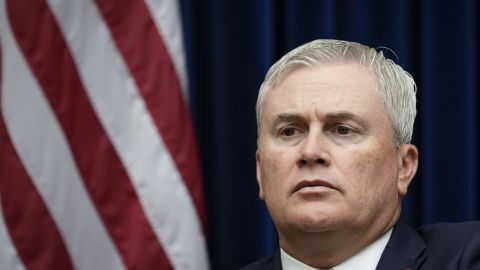
Comer also wants to hear from several former US intelligence officials who, days after the laptop story broke, wrote an open letter saying it had “all the classic earmarks of a Russian information operation.” The group of former officials who signed the letter included former Director of National Intelligence James Clapper, who, as a CNN contributor, appeared on the network to express his view.
Though the former officials admitted, “we do not have evidence of Russian involvement,” their letter set the tone for much of the early discussion and coverage of the laptop.
In a statement to CNN, the FBI said, “The correspondence between the FBI and Twitter show nothing more than examples of our traditional, longstanding and ongoing federal government and private sector engagements, which involve numerous companies over multiple sectors and industries. As evidenced in the correspondence, the FBI provides critical information to the private sector in an effort to allow them to protect themselves and their customers.
“The men and women of the FBI work every day to protect the American public. It is unfortunate that conspiracy theorists and others are feeding the American public misinformation with the sole purpose of attempting to discredit the agency.”
Among the messages given the most attention from Musk and other critics are a series of emails between Roth and Elvis Chan, an FBI special agent based in San Francisco, where he focuses on cybersecurity and foreign influence on social media. On October 13, the day before New York Post story published, Chan instructed Roth to download ten documents on a secure portal.
Roth responded, “received and downloaded – thanks!”
Michael Shellenberger, who is among those Musk has entrusted with access to the internal messages, wrote about the Chan communication with Roth. Shellenberger does not describe the contents of the files, but he does insinuate that the timing of the message suggests Chan was secretly providing Roth information about the Hunter laptop.
At the FBI’s headquarters in Washington, a team reviewing the internal communications released by Musk says it has identified the 10 documents Chan sent to Roth. “I reviewed all 10 of these documents personally and I can say explicitly there is nothing in these 10 documents about Hunter Biden’s laptop or about any related story to that,” an FBI official involved in the review told CNN.
The official said eight of the documents pertained to “malign foreign influence actors and activities,” the FBI’s terminology for foreign government election meddling. The official said the other two documents were posts on Twitter the FBI flagged as potential evidence of election-related crimes, such as voter suppression activities.
Another interaction that has drawn suspicion is an internal message from early 2021 that Shellenberger cites showing that the FBI paid Twitter $3.4 million beginning October 2019. In the message, an unnamed associate emails Baker saying, “I am happy to report we have collected $3,415,323 since October 2019!”
The FBI says the bureau is obligated under federal law to reimburse companies for the cost they incur to satisfy subpoenas and other legal requests as part of the FBI’s investigative work.
The FBI describes its discussions with Twitter as the type of information-sharing that Congress and both the Trump and Biden administrations encouraged to help tech companies and social media platforms protect themselves and their users. The released messages appear to show that FBI officials repeatedly noted that it was up to the content moderators at the company to take action if a post violated their rules.
“All the information exchanged is about the actors and their activity,” a second FBI official who reviewed the communications told CNN. “What we are not providing is specifics about the content and the narrative. We are also not directing the platforms to do anything. We are just providing it for them to do as they see fit under their own terms of service to protect their platforms and customers.”
After the 2016 election, social media executives knew they had a problem. Russian operatives had used their platforms to run a massive covert influence campaign to help elect Donald Trump, using bots to spread disinformation and sow division among Americans.
To prepare for the next election, the executives set about bolstering their internal controls, including hiring former law enforcement and intelligence officials. But they also knew they had to forge a closer relationship with the US government to help root out foreign trolls and sources of disinformation.
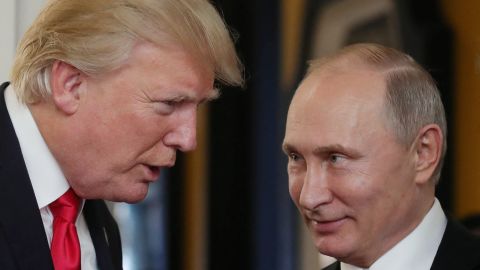
What followed were a series of regular meetings with federal agents that began in May 2018.
The released communications as well as interviews with people involved in the meetings portray routine, friendly and sometimes tense contacts between company executives and the government officials with whom they regularly interacted. Among the released communications are lively exchanges between Twitter and the FBI, revealing some of the sensitivities — and tensions — at play as the government and Silicon Valley slowly figured out how to work together.
One former FBI official who spoke to CNN recalls that tech executives would insist on meetings away from their campuses, in part because government agents weren’t welcome. Feelings in Silicon Valley toward the intelligence community were still raw since the Edward Snowden leaks detailed a vast data collection apparatus that targeted the tech companies.
“Early on, who hosted the meeting was also a political football,” said a person familiar with the meetings between the government and Silicon Valley. “Each company wanted someone else to. There were worries about employees seeing a bunch of feds and leaking it in an inaccurate way.”
One tech source, however, dismissed this and said companies offered their offices for the meetings out of a shared sense of responsibility.
Nevertheless, the meetings went ahead. The first one took place at Facebook’s headquarters in Menlo Park. Later meetings were held at Twitter and LinkedIn’s offices, a person familiar with the meetings told CNN.
Some of the early interactions were terse. Reports published by CNN and other news organizations described complaints from some tech executives that the FBI was sharing only limited information, useless to help the companies protect their platforms.
A telling moment came early on when a government lawyer lectured tech executives about the limits on what the government can do to help, multiple people who attended the meeting told CNN. One Silicon Valley executive described how the lawyer gave a 20-minute speech about the First Amendment and insisted that “government representatives can’t tell the companies to take any content down.”
Former Twitter employees and FBI officials involved say that by 2020, their discussions had become better coordinated and useful to both sides. One indicator of how advantageous the relationship had become: By 2020, Facebook was issuing press releases about some of the discussions.
Musk and other critics of the interactions point to released messages that they claim show a cozy relationship between the government and Twitter. But the messages also show Roth, Twitter’s then head of site integrity, repeatedly pushing back against asks from the FBI.
At various points, the Twitter communications show Roth resisting pressure to reveal certain information about users absent a formal legal request, such as which third-party VPN services were used by some account-holders to access Twitter.
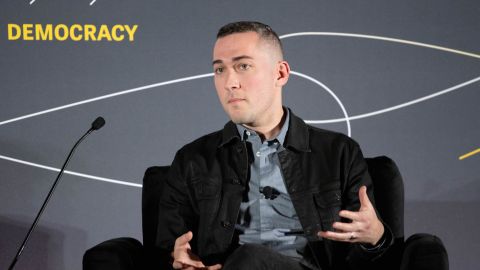
Roth also shut down a request that the company share more of its data with intelligence officials.
Others within Twitter noted the US government’s interest in Twitter’s data and urged colleagues to “stay connected and keep a solid front against these efforts.”
Conservative critics continue to blame Roth for Twitter’s suppression of the laptop story, but he insists he didn’t make the final call and says he thought it was a mistake. “It is widely reported that I personally directed the suppression of the Hunter Biden laptop story,” Roth said last month. “It is absolutely, unequivocally untrue.”
Exactly who in Twitter’s leadership ultimately made the call to block the story remains unclear.
In December 2020, Roth gave a sworn declaration to the Federal Election Commission saying the government had warned of expected hack-and-leak incidents targeting people associated with political campaigns. Roth said that he learned in the meetings with government agencies there were “rumors that a hack-and-leak operation would involve Hunter Biden.”
Roth did not point to the government as the source of the rumor, but his claim that law enforcement agencies gave general warnings about disinformation campaigns dovetails with recent testimony from Chan, the FBI agent who played a key role in the meetings.
Chan was deposed this year as part of a lawsuit brought by the Missouri attorney general alleging government censorship of social media. Chan disputed that the government told social media companies to “expect” hack-and-leak campaigns, saying that it would have only warned companies it was a possibility.
That Hunter Biden might be the target of a hack-and-leak operation was being publicly discussed at the time, after it emerged that Burisma Holdings, a company he worked with in Ukraine had reportedly been hacked by Russian military intelligence early in 2020.
Chan also testified that government agents never raised Hunter Biden specifically, and that his name came up only when a Facebook analyst asked specifically for relevant information. An FBI agent in the meeting declined to answer, Chan recalled, adding that she was likely not authorized to address the question because at the time the FBI had not publicly confirmed its Hunter Biden investigation.
Source: https://www.cnn.com/2022/12/23/politics/twitter-files-elon-musk-fbi-hunter-biden-laptop/index.html






